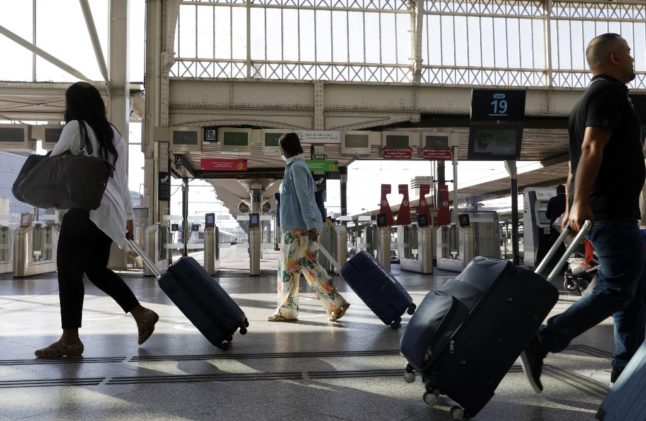Many of us are feeling the call to evacuate the cities and head for the great outdoors as the warmer weather and sunshine take hold across France. If you’re off on a hiking trip or simply taking your pet for a walk in an area with high grass, you might be wondering about the chances of being bitten by a tick. Unfortunately, these pesky insects can be found across France, though they are more common in certain areas.
If you do find yourself in a particularly tick-friendly environment and you’re wondering how to protect yourself, or you’re simply wondering which parts of France are tick hotspots, we’ve put together a guide for avoiding these tiny insects while in France.
What you should know about ticks in France and how to avoid them
While France is known for being a global gastronomy capital, sometimes a delicious beverage is just as important as a hearty meal.
Thankfully, France has a wide range of refreshing drinks to try, and these warm weather specific beverages are sure to quench your thirst whether you’re sitting on a terrace or along the beach.
If you find yourself hosting pre-dinner drinks in the coming weeks, you’ll want to consult our list of the best things to drink in France this summer. There are options for everyone, for those looking for alcoholic beverages and non-drinkers alike.
Rosé, spritz and pressé: 5 things to drink in France this summer
Strikes are an undeniable part of French cultural identity. But will this summer be worse than average when it comes to industrial action? After over two years of pandemic shutdowns and layoffs, and amid rising inflation, workers are demanding higher wages. SNCF (France’s national rail service) saw its workers stage a one-day walk out in early July, causing widespread delays and cancellations.
So how much of a headache will travel during the first summer without strict Covid-19 related restrictions be? We’ve tried to look ahead to try to give you an idea of what to expect from rail strikes this summer in France, and whether they’re likely to rumble on.
Will rail strikes in France rumble on throughout the summer?
Regardless of whether you’re looking to stun with your next Bugatti or simply seeking out a trustworthy Peugeot, buying a car in France as a foreigner might feel confusing, particularly if you do not hold a French driver’s licence.
Living in France involves a lot of paperwork, and so do procedures for buying and selling cars here. However, you might be pleasantly surprised that the process is more straightforward than you might have thought.
Complete with the list of documents you need to provide, this article will help speed along your process toward your next vehicle.
Reader question: Can I buy or sell a car in France if I have a foreign driving licence?
On the topic of driving, you might be considering heading off to your summer holidays by car this year. With the school year finished, families across France are hitting the roads to make their way to la campagne for some much needed R&R.
Each year, France’s traffic watchdog, Bison Futé, keeps us informed of what to expect in terms of road congestion, offering four different levels of traffic intensity to help you decide whether to pack that extra snack and book for the long ride.
When – and where – to avoid driving on France’s roads this summer
If you have a television in your living room, you might be able to look forward to saving €138 this upcoming year. The French government recently announced plans to scrap the TV licence, but if you’ve wondered what that money actually goes to and why it might be done away with, you’re not alone.
The TV licence actually raises over €3.7 billion a year for national public broadcasting, so the decision to get rid of it has not been met with applause from everyone. We’ve explained exactly what your €138 had been going towards, and answered your question of how public media in France might end up being funded in the future without the TV licence to help
EXPLAINED: What France’s TV licence pays for and what might replace it?



 Please whitelist us to continue reading.
Please whitelist us to continue reading.
Member comments